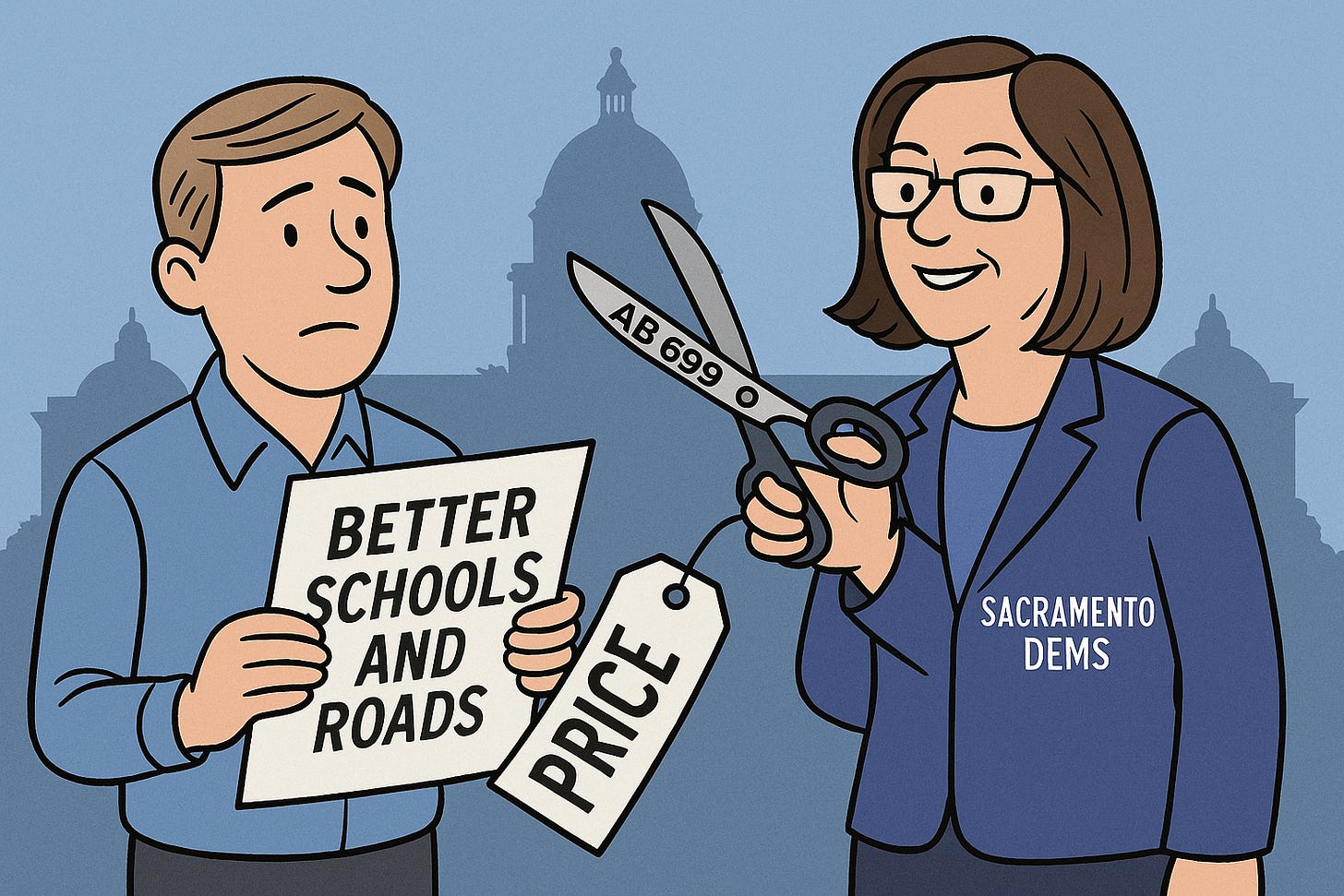Sacramento’s Plan to Hide Tax Hikes
California’s AB 699 aims to obscure ballot measure details, easing the path for tax hikes.
🕒 4 min read
A Deceptive Ballot Game
Picture this: you’re at the ballot box, scanning a measure called “Better Schools and Roads.” It sounds like a win for the community, but the fine print—tucked away in a voter guide you might never read—reveals a costly tax hike for decades. California’s Assembly Bill 699, racing through Sacramento, wants to make this sleight-of-hand standard. Former State Senator and fiscal watchdog John Moorlach, in an Orange County Register column, puts it bluntly: “Assembly Bill 699 makes it easier to pass feel-good tax measures that sound great on the surface but hit your wallet later.” This isn’t about clarity; it’s about masking costs to sway voters.
Hiding Costs, Pushing Agendas
AB 699 reflects a deeper issue: the progressive left’s relentless drive for wealth redistribution through ever-higher taxes. Current law, shaped by bipartisan reforms in 2015 and 2017, demands ballot measures disclose tax rates, duration, and revenue. AB 699 would let proponents swap that transparency for vague phrases like “See voter guide for details.” Which is the intent. This bill would actually move critical fiscal impact information from the ballot itself (which everyone reads) over to the voter pamphlet that is mailed out. It’s a deliberate move to obscure the financial impact of bonds and taxes, making it easier to fund sprawling government programs by hiding their true price from voters.
Whack-A-Mole with Voter Trust
This isn’t Sacramento’s first attempt to dilute ballot transparency. Dan Walters, in a CalMatters column, calls AB 699 part of a “political Whack-A-Mole” game, noting a similar 2019 bill was vetoed by Governor Newsom for reducing openness. Backers, including low-income housing advocates, claim AB 699 helps pass bonds, but its effects stretch to all bond measures, potentially hiding tax hikes. The assumption seems to be that voters are too distracted to dig into voter guides or websites. It’s a tactic that doesn’t just undermine informed choices—it erodes trust in the democratic process.
Transparency Shouldn’t Be Optional
If lawmakers believe new taxes or bonds are vital, they should make the case openly, not rely on vague ballot labels to nudge voters along. AB 699 bets on apathy, assuming people won’t notice they’re signing up for heavier tax burdens. Hiding costs to push an agenda isn’t leadership—it’s manipulation. Transparency isn’t a hurdle to overcome; it’s the foundation of fair governance.
So, Does It Matter?
What will Gavin Newsom do? This bill sailed through the State Assembly on the strength of Democratic votes, and has gone through a couple of State Senate committees on partisan-line votes. Undoubtedly it will pass out of the liberal upper chamber and head to Newsom’s desk. AB 699 is a test of his priorities as he eyes a future beyond Sacramento, with whispers of presidential ambitions growing louder. In 2019, he vetoed a similar bill, citing the need for transparency. Will he hold that line, appealing to moderate swing voters who handed Trump the presidency over Harris by demanding clarity and accountability? Or will he bend to the progressive delegates who dominate Democratic nominating conventions, eager to fund expansive programs through obscured tax hikes?
Newsom’s decision on AB 699 will be one of many signals as to whether Newsom is playing to the far-left base or betting on the broader electorate’s demand for honesty. Californians deserve a governor who values truth and transparency, not one enabling Sacramento’s tax tricks.




